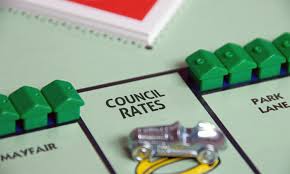
Landlords and lenders were at risk of being held liable for outstanding rates of tenants pursuant to the Local Government Rates and Other Matters Act 2019.
Section 13 of the act provides:
Payment of rates on sale of relevant property
13. (1) The owner of a relevant property who proposes to sell the property shall, before the completion of the sale, pay to the local authority concerned any rates imposed under this Act and accrued interest which is due and payable in respect of that property.
(2) The local authority concerned shall provide a person referred to in subsection (1) or a person acting on behalf of the person in connection with a sale of a relevant property with—
(a) confirmation of any unpaid rates imposed under this Act and accrued interest at the date of the sale of a relevant property, or
(b) confirmation that there are no outstanding amounts payable,
as the case may be, in such form and manner as may be prescribed.
(3) In this section—
“sale” includes, in relation to a relevant property, the transfer of the property by its owner or any trustee or personal representative of the owner to another person—
(a) in consequence of—
(i) the exercise of a power under any enactment to compulsorily acquire land, or
(ii) the giving of notice of intention to exercise such power,
or
(b) for no consideration or consideration which is significantly less than the market value of the property at the time of its transfer.
It is likely that this provision also obliges a receiver or mortgagee in possession to pay the outstanding rates on or before a sale.
Section 14 of the act provides that interest can be charged on unpaid rates:
Unpaid rates to be a charge on relevant property
14. (1) Any rates levied by a rating authority in respect of a relevant property payable under this Act and any interest referred to in section 12 which is due and unpaid by the owner of the relevant property shall be and remain a charge on the relevant property to which it relates.
(2) Notwithstanding section 36 of the Statute of Limitations 1957, the charge referred to in subsection (1) shall continue to apply without a time limit until such time as it is paid in full.
(3) This section does not affect—
(a) the liability of any previous occupier for outstanding rates in respect of which he or she is primarily liable, or
(b) the functions of the rating authority concerned under any other enactment to collect any outstanding rates from the occupier or occupiers primarily liable.
Section 7 of the Local Government Rates and other Matters Act 2019 provides for set off of rates against any money owing by the local authority against any money due to the local authority.
Discharge of rates by set-off
7. Where a sum is due to any person by a local authority and, at the same time, a sum is due to such local authority by such person in respect of rates the former sum may be set off against the latter either, as may be appropriate, in whole or in part.
Section 12 provides for interest to be charged on overdue rates.
Conclusion
Landlords and lenders would be held liable for rates of tenants if all of this act commenced without amendment. There was significant lobbying, however, with the result the the act will be amended before coming into effect. The Minister for Housing, Planning and Local Government has recognised that if it came into law without amendment there may well be significant unforeseen and unintended consequences.
The most likely change is to ensure that landlords and banks are not liable for outstanding rates of tenants, but this remains to be seen. Watch this space.